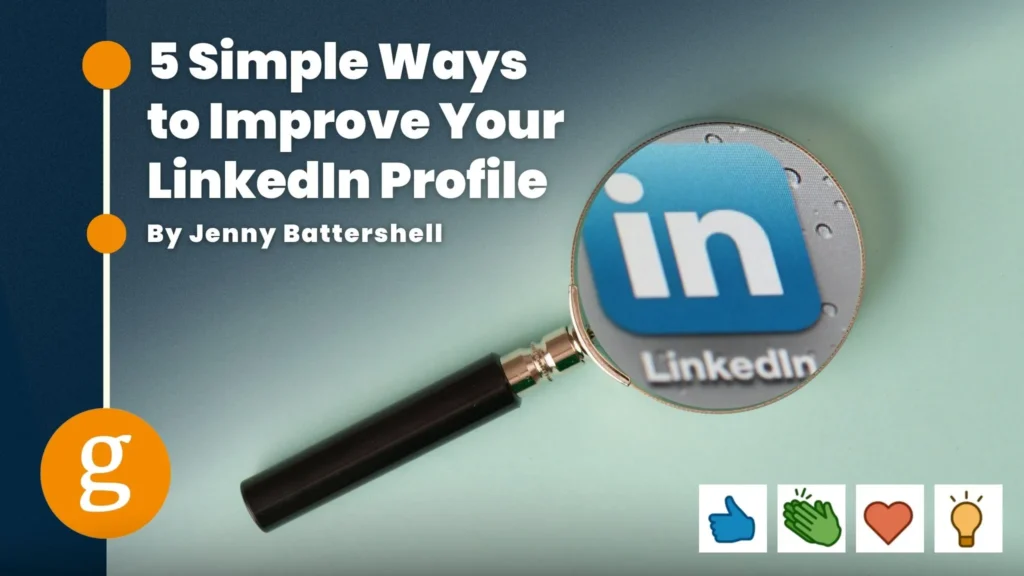6 Important Tips for Day One on Your New Job
Goodwin Recruiting | Career Advice, Financial Services, Manufacturing & Engineering, Opportunity for All, Senior Living | July 24, 2025

Anticipating the first day of work at your new job can create jitters and produce nervous energy. This is totally understandable since day one sets the tone for anyone’s integration into a new company and team. First impressions count for so much and can stick with new hires for a long time, so it matters to have a calm and cool mindset.
Today’s professionals work hard to land great jobs, and for many, their dream jobs. How do you make sure to put your best foot forward on your first day? We have answers.
Just like with any new chapter in life, being prepared will snuff out the nerves and set you free to move forward with excitement and confidence.
Ensure you’re prepared for day one of your new job by using these six important tips.
1. Arrive early and stay late
Make a strong first impression by arriving at work 10 to 15 minutes early and plan on staying later than the end of normal working hours. Since the best laid plans can go awry, do these things to ensure there are no hiccups in your early arrival:
- Don’t wait until your first day to plan your timing and the route you will take to work. In fact, we highly recommend doing a dry run before your job officially starts.
- Consider the additional time you’ll need if your trek to work involves driving in rush hour traffic. If you plan to use public transportation, check the schedules in advance because times and routes can change. If you’re carpooling or relying on family or friends for transportation to work, be sure to clearly communicate your plans so they know what to expect – and confirm with them the day before.
- Expect the unexpected! On the night before or the morning of your first day, check local weather, traffic, construction, and road closure reports. Being aware of unexpected delays will give you time to choose an alternate route and still be early to your job as planned.
2. Dress to fit the company culture – or your specific role
During the job interview and hiring process, you spent time at your new job site, met members of your team, and you likely toured the facility. You saw how your new co-workers and other colleagues dress. Still, does the employer – or your specific area of the operation – have an established dress code?
It’s advisable to ask the hiring manager or your new supervisor about this. If you’re still in doubt, err on the side of dressing a bit more formally instead of looking too casual on your first day. Once you establish yourself as a professional who takes your job seriously, you can adjust your attire with confidence that you are appropriately dressed for the company culture or your specific role in the organization.
3. Introduce yourself and learn names
You’ll meet a lot of people when you start a new position, and this comes with the challenge of building rapport with your new colleagues. Although it may be impossible to learn and remember everyone’s name on your first day, there are things you can do to proactively initiate conversations and start building relationships with people on day one.
Here are some great ways to get started:
- Take the initiative in introducing yourself to others, and with every person you meet, be friendly, remember to smile, and make eye contact.
- Take advantage of downtime on breaks, before meetings, or at the water cooler or coffee machine to introduce yourself and engage in brief conversations. This will help you get to know people and vice versa.
- If you’re not good with names, use these tips to improve name recognition. Also, take notes after you meet new people to help you remember their names.
4. Pay attention during orientation, training, and onboarding
Your new employer hired you because you’re qualified for the job and because they like you. Now, through orientation, training, and onboarding, they need you to know and understand how things work. Don’t feel pressured to immediately prove yourself. Learn first!
By the same token, these onboarding processes are not the time or place to speak out of turn, overshare about previous employers, object to procedures, or focus on talking instead of understanding. In other words, don’t launch into know-it-all or complaint mode.
Important tips:
- Listen, observe, and learn everything you can about the company, the job, policies, and procedures. You’ll have plenty of opportunities to share insights, experiences, and knowledge down the road.
- If concerns arise during your orientation and training, write them down. Then consider how you can turn your concerns into questions or recommendations that you can bring to your supervisor’s attention for improvement. This is better than presenting complaints with no solutions, which is nearly always viewed as negativity.
- On your first day and going forward, decide that you will bring positive energy to your new role and team, especially when you encounter challenges – with people, processes, or policies. Every organization needs a regular infusion of better ideas and ways of operating. You can be a conduit by being an observer when issues arise and taking notes to address at the appropriate time in the appropriate ways. Be a bearer of valuable insights and solutions, not a complainer.
5. Keep relationships strictly professional at first
It’s perfectly natural for people to want to become friends with certain co-workers at a new job, but it’s best to stay professionally detached early on. Place friendships in your eventually column, after you have a chance to really get to know someone.
For example, avoid connecting with co-workers on social media when you start your new role, particularly on platforms like Instagram and Facebook, where exposing your personal life to work friends could harm the relationship (and your reputation) due to stark differences in values and lifestyles, and the potential for misinterpretation. The same advice applies to socializing in person outside of work, which represents similar risks. In other words, don’t jump in too soon.
Exceptions to this rule would be attending industry events together and connecting on LinkedIn. Since LinkedIn is a professional networking platform, connecting with co-workers, bosses, and professionals in other areas of the organization can fast track getting to know more people at work.
Rule of thumb: Keep your personal and professional lives separate, especially in your first year on the job. Focus on building in-person trust and rapport before connecting on a personal level.
6. Reflect at the end of your first day and plan for tomorrow
When you get home from your first day on the job, think about what you learned and review the notes you wrote down from meeting co-workers, along with any questions or concerns that surfaced during the day. Make a list of follow-up questions for trainers, co-workers, your boss, or anyone else with whom you interacted during the day.
Maybe you need tech support or help in setting up your workspace. Maybe you need to clarify expectations with your manager, or ask how your success will be measured, or what tasks to prioritize. Or maybe you’d like to know your team’s preferred communication styles and methods. Tomorrow, or the next day, you can get answers while showing that you’re genuinely set on making positive strides.
Most important – take time to celebrate your first of many successful days, months, and years to come!
Let us help you find and celebrate your first day at a new job
If you’re dreaming of taking the next step in your career, Goodwin Recruiting is here to support your job search! We have more than 25 years in talent recruiting and are repeatedly recognized as a Forbes Best Recruiting Firm. Goodwin Recruiting has coached professionals nationwide in landing great jobs with leading employers across every industry.
Reach out to us today. You’ll find that we put our whole hearts into our work and prioritize integrity in everything we do. Our expert recruiters believe in building solid, long-term relationships with our clients and candidates, and we would love to link arms with you in guiding you to your dream job!
Share This Article
















































